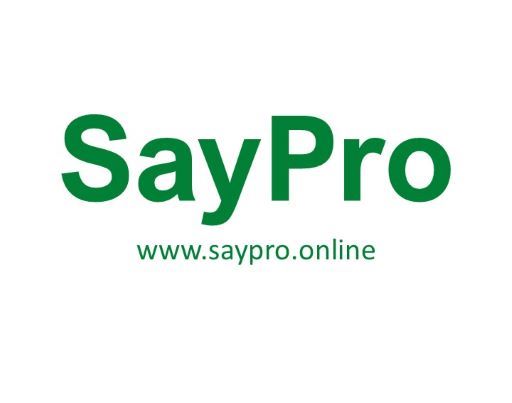1. Purpose and Importance of Documentation
SayPro is committed to maintaining transparent, accountable, and traceable procurement and contract awarding processes. All documentation related to the SayPro Monthly Awarding Contracts must be systematically recorded, securely stored, and made accessible via the SayPro website to support:
- Effective audit trails
- Regulatory compliance
- Transparency in public and internal reviews
- Efficient retrieval for management reporting and stakeholder communication
2. Scope
This record-keeping and documentation procedure applies to:
- All awarded contracts processed under SCMR-1 for January
- Evaluation reports, minutes of meetings, and decisions made
- Communications with suppliers and internal stakeholders
- Compliance documents and financial authorizations
3. Documentation to be Maintained
The following documents must be compiled, verified, and archived:
| Document Type | Details/Notes |
|---|---|
| Tender Notices and Advertisements | Copies of published tenders, including date and publication platforms |
| Bid Submissions and Evaluation Reports | All original submissions, scoring sheets, and evaluation panel comments |
| Award Letters and Contract Agreements | Signed contracts and official award notifications |
| Bid Committee Meeting Minutes | Records of meetings, attendance registers, and decisions made |
| Compliance and Due Diligence Documents | Tax clearance, BBBEE certificates, company registration details |
| Financial Approval Records | Budget confirmation, purchase requisitions, and internal approval documents |
| Correspondence Records | Emails and letters exchanged with vendors or internal departments |
| Monthly SCMR-1 Report | Finalized report submitted to SCM and other departments summarizing awards |
4. Storage and Access Protocol
All documentation must be:
- Digitally archived on the SayPro official website under the secure Procurement Records portal.
- Clearly labeled using the format:
Month_Year_SCMR-1_[DocumentType]_[Supplier/ProjectName]. - Access-controlled, ensuring only authorized personnel (e.g., SCM staff, compliance officers, internal auditors) can retrieve sensitive files.
File Example: January_2025_SCMR-1_ContractAgreement_ABCConsulting.pdf
5. Data Integrity and Security Measures
- Regular backups are conducted to ensure no data loss.
- A document version control system is maintained to track any updates or amendments.
- Documents are scanned for quality and completeness before uploading.
6. Audit Readiness
- All January SCMR-1 related records must be readily accessible and categorized for internal and external audits.
- A quarterly internal review is conducted to verify the accuracy and completeness of stored records.
7. Review and Update
- This documentation protocol is reviewed bi-annually or when major procurement policy changes occur.
- Suggestions for improvement from audit reports or user feedback are logged and considered for future updates.
